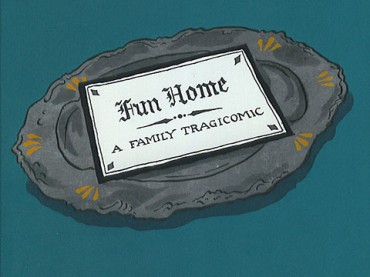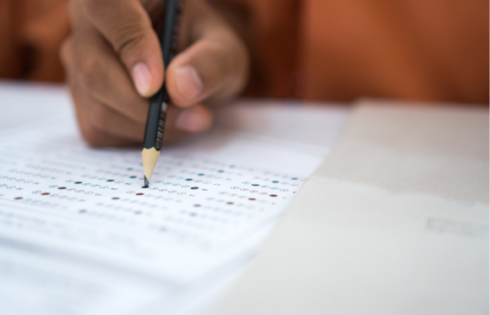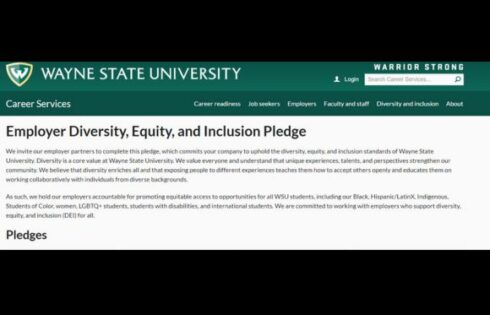
OPINION
The news media have portrayed a recent dispute over summer-reading requirements at colleges in South Carolina as a debate over academic freedom and political censorship. Lost in the outcry is the fact that academics are shirking their responsibility to teach their students.
The University of South Carolina Upstate in Spartanburg assigned Out Loud, a collection of stories and essays gathered from an LGBT radio program based in Columbia. As a part its College Reads! summer reading program, The College of Charleston assigned Fun Home, a graphic novel about the author’s experiences with her gay father and the realization of her own homosexuality.
After the schools refused to select different books, or allow students an opportunity to select an alternative book if they objected to the books’ content, the Legislature approved a budget that cut public funding for the reading programs. The cuts amounted to $52,000 at The College of Charleston and $17,142 at USC Upstate.
Eventually, the funding was restored by lawmakers on the condition that the money be used to follow a state law requirement to teach students the “principles of the United States Constitution, the Declaration of Independence, and the Federalist Papers, including the study of and devotion to American institutions and ideals.”
By now, incoming freshmen at both schools have read the gay-themed books and moved on with their lives. The temptation will be to let this controversy subside like so many others. But before it is lost in the popular memory, this issue can tell us a great deal about academia and its biases.
Choosing Fun Home and Out Loud for summer reading programs reveals that institutions of higher learning are all too willing to privilege a political agenda over what one would assume is their inherent purpose: educating students.
While the outcome in South Carolina may be viewed as a victory, it is not an ultimate solution to the underlying problem – that many academics see summer reading programs as opportunities to present a single side of an issue in the hope that students will come away with the same political ideas they have.
A Young America’s Foundation survey released in July of required reading programs for incoming college freshmen nationwide and found that, over the past three years, none of the colleges it looked at had assigned a conservative-leaning book.
The results “found that many of the ‘required’ books only offered left-wing perspectives on topics such as race, feminism, socialism, inequality, and wealth redistribution.”
In response to the survey, campus leaders nationwide denied political intent in summer reading selections, suggesting that they are simply trying to engage students, invite debate, foster a love of reading, challenge students intellectually, and help them face difficult topics.
As a student, I find the defense hollow. They have the world of English literature at their disposal, yet they choose to force identity politics, left-leaning causes, and other similar subjects upon us.
At the College of Charleston, assignments for summer reading in the past 10 years include Eating Animals, an “expose” of the horrors of industrial farming, and The Things They Carried, a fictional memoir designed to make students hate the Vietnam War. USC Upstate’s summer reading curriculum over roughly the same time period has included such titles as Nickel and Dimed, which makes the argument that the minimum wage is not a living wage.
If these selections are starting to sound like they come from a progressive book club, it’s because they do.
Put yourself in the position of a college administrator working on a summer reading program. If you accept that your goal is to advance the intellectual stature of your students, the traditional canon of Western literature offers a plethora of fine choices. Instead of a topical, one-sided political book, wouldn’t students’ minds be better enriched reading Dickens, Darwin, Ellison or Kipling?
In a March article about the controversy over Fun Home and Out Loud in South Carolina, the National Association of Scholars’ Ashley Thorne suggests that these schools should shift their focus away from faddish political books. “[W]hat we really need is a different spirit among colleges and universities: a determination to choose books based on criteria such as imaginative power, literary merit, and historical significance,” Thorne wrote.
Unfortunately for today’s college students, “literary merit” and “historical significance” often take a backseat to a leftist political agenda.
Summer reading programs are opportunities for students and faculty to establish common intellectual ground before arriving on campus. They are also an opportunity to abuse academic authority. Had The College of Charleston and USC Upstate put the enrichment of its students’ minds ahead of the political prejudices of its faculty, Fun Home and Out Loud would have been out of the question for assigned summer reading.
This is not to say that the themes addressed in those books are outside the reach of academic inquiry. Coming of age and realizing one’s own sexuality are timeless, essential themes.
To address these themes while satisfying the important criteria of “imaginative power” and “literary merit,” the schools might have chosen Myra Breckinridge by Gore Vidal or Of Human Bondage by W. Somerset Maugham.
For many academics, however, books like these are just too subtle. They don’t punch readers in the face with a stance on a contemporary political issue. Tragically, this disqualifies them as summer reading.
College Fix contributor Stephen Edwards is a student at Furman University.
Like The College Fix on Facebook / Follow us on Twitter
IMAGE: Mariner Books





Please join the conversation about our stories on Facebook, Twitter, Instagram, Reddit, MeWe, Rumble, Gab, Minds and Gettr.